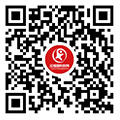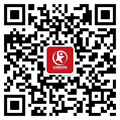2019年4月17日華師雙語大劇院舉辦了"Explore the Brain"(探索大腦)主題講座,此次講座邀請了華師雙語國際專家咨詢委員會(International Advisory Board)成員,斯坦福大學文理學院講席教授,美國藝術與科學學院院士,美國國家科學院院士,未來科學大獎科學委員會委員--駱利群教授。
On April 17, 2019, ECNUAS Theatre held a seminar on “Exploring the Brain”.This lecture invited members of the International Advisory Board, Professor of the Stanford University College of Arts and Sciences, USA. Academician of the College of Arts and Sciences, Fellow of the National Academy of Sciences, Member of the Scientific Committee of the Future Science Awards - Professor Luo Liqun.
講座前,龔校長致辭感謝駱教授不遠萬里而來為學生講課,向駱教授頒發了國際咨詢委員會成員聘書。駱教授作為咨詢委員,將為我校的國際化建設和學術發展提供建設性的意見和建議。
Before the lecture, President Gong delivered a speech thank Professor Luo for coming to do the lecture and presented Professor Luo with a letter of appointment from the ECNUAS International Advisory Committee. As an advisory committee member, Professor Luo will provide constructive comments and suggestions for the internationalization and academic development of our school.
如同給斯坦福大學的學生授課一樣,駱教授首先告訴了同學們一套思考的方式:其中較重要的就是“問問題“。比如,我為什么會長得像我爸爸媽媽?我為什么會記住或者忘記?當問題出現,接下來就是“找答案“的過程,通過觀察、測量、思考、總結,提出理論并設計實驗來驗證。
Just like teaching at Stanford University, firstly, professor Luo told the students how to think: the most important one is "ask questions." For example, why do I look like my father and mother? Why do I remember or forget? When the problem arises, the next step is “finding the answer”, which is verified by observing, measuring, thinking, summarizing, proposing the theory and designing the experiment.
駱教授講述了牛頓、孟德爾等科學家發現科學規律的過程,同時在屏幕上播放了一個大家不太熟悉的人物照片,華師雙語高中部一位學生答出了正確答案,卡哈爾。卡哈爾是神經生物學的奠基人,也是駱教授十分傾佩的科學家。從卡哈爾,學生們走進了神經生物學的領域。一個又一個的案例,告訴了學生們什么是神經生物學研究的范疇。
Professor Luo talked about the process of discovering the laws of science by Newton, Mendel and other scientists. At the same time, a picture of people who are not familiar with them was played on the screen. A student from the high school answered the correct answer, Cahal. Cahal is the founder of neurobiology and a scientist that Professor Luo admires. From Cahal, the students entered the field of neurobiology. One case after another, telling students what is neurobiology research.
比如,我們的母語和第二語言發展的年齡段,在腦部呈現不同的神經信號圖像;通過這個命題,大腦的基本結構呈現在我們面前。那么,我們又是如何感知這個世界呢?五種感觀支配著我們感知這個世界,視覺、聽覺、嗅覺、味覺、觸覺。其中鮭魚回巢的想象,非常典型了說明了它們依靠嗅覺記憶的行為模式。小雞依靠視覺產生行為的實驗,也非常有趣,同學們紛紛舉手猜測這個實驗,答案也非常接近設計實驗的目的。貓頭鷹是的聽力大師,科學家給它們戴上眼鏡來做實驗,也發現了聽覺的奧秘。這些有趣的實驗,激發了同學們的熱情,華師雙語的學生們,又打開了一扇走進大腦之門!
For example, the age range in which our mother tongue and second language develops different images of nerve signals in the brain; through this proposition, the basic structure of the brain is presented. So how do we perceive the world? Five senses dominate our perception of the world, sight, hearing, smell, taste, and touch. The imagination of the salmon returning to the nest is very typical of their behavioral patterns which relying on olfactory memory. The experiment of the chicks relying on visual behavior is also very interesting. The students tried to find the answer, which is very close to the purpose of the experiment. Owls are famous hearing masters. Scientists put on glasses to do experiments and discovered the mystery of hearing. These interesting experiments inspired the enthusiasm of the students, and opened a door to the students!
駱教授也講到了近些年非常熱門的話題,人工智能的話題---電腦和人腦。他用一系列數據告訴了學生們兩者之間的區別,也用“網球“名將來形象地描繪我們人腦的反應。當然人的大腦是可以不斷發展,不斷進行深度的學習的。這是教授對學生們的鼓勵,應該繼續進行深入學習和探索,知識是無窮盡的。
Professor Luo also talked about the hot topic in recent years, the topic of artificial intelligence - computer and the human brain. He used a series of data to tell the students the difference and also used the "tennis" vividly depict the reaction of our human brain. Of course, the human brain can continue to develop and continue to study in depth. This is the encouragement of the professors to the students. They should continue study and explored in depth, and knowledge is endless.
講座的時間很快就過去,但是激發出的思維火花才閃現出,同學們又提出了不少關于科學和探究的問題。其中兩位在講座中回答出正確答案的學生,獲得了駱教授的贈書。我校學生提出問題的深度讓教授非常驚訝,教授贊嘆中學生有人回答出了大學里都沒有人回答出的問題。講座結束,駱利群教授走進課堂和高年級學生繼續探討,和他們討論了關于環境和生物、生物和物理等交叉學科的知識,也為他們未來的發展提出建議。
The time for the lecture passed soon, but the spark of thought was flashed out, and the students have many questions about science inquiry. Two of the students who answered correctly in the lecture received a gift from Professor Luo. The depth of the questions raised by our students made the professor very surprised. The professor praised some students can answering questions that even too difficult to the university student. At the end of the lecture, Professor Luo Liqun went into the classroom continue to discuss the knowledge of environment, biology and physics, and also provide suggestions for their future development.
一場高學術的講座的意義,讓我們看到這個世界的奇妙和值得探索之處,同時,也了解了我們如何走向這里,開始自己的道路。一個小的思維火花,也能綻放無限的光芒,為人類的發展帶來深刻的意義。華師雙語將邀請更多國際度的專家學者來我校作訪問交流,指導我校學生的專業學習。從華師大講堂為一個出發點,專家學者來為學生播撒下了科學的種子,希望在若干年以后,這里能產生未來的學者大咖,再次站在華師雙語的講臺上。
The significance of a high academic lecture allows us to see and explore the world. At the same time, we also understand how can we start our own path. A small spark of thought can bloom infinitely, bringing profound meaning to the development of mankind. ECNUAS will invite more internationally renowned experts and scholars to visit us, to guide the professional study of our students. From ECNUAS, experts and scholars bring spark of thought. I hope that after few years, our school will invited scholars back to ECNUAS.




 公眾號
公眾號






















 服務熱線
服務熱線
